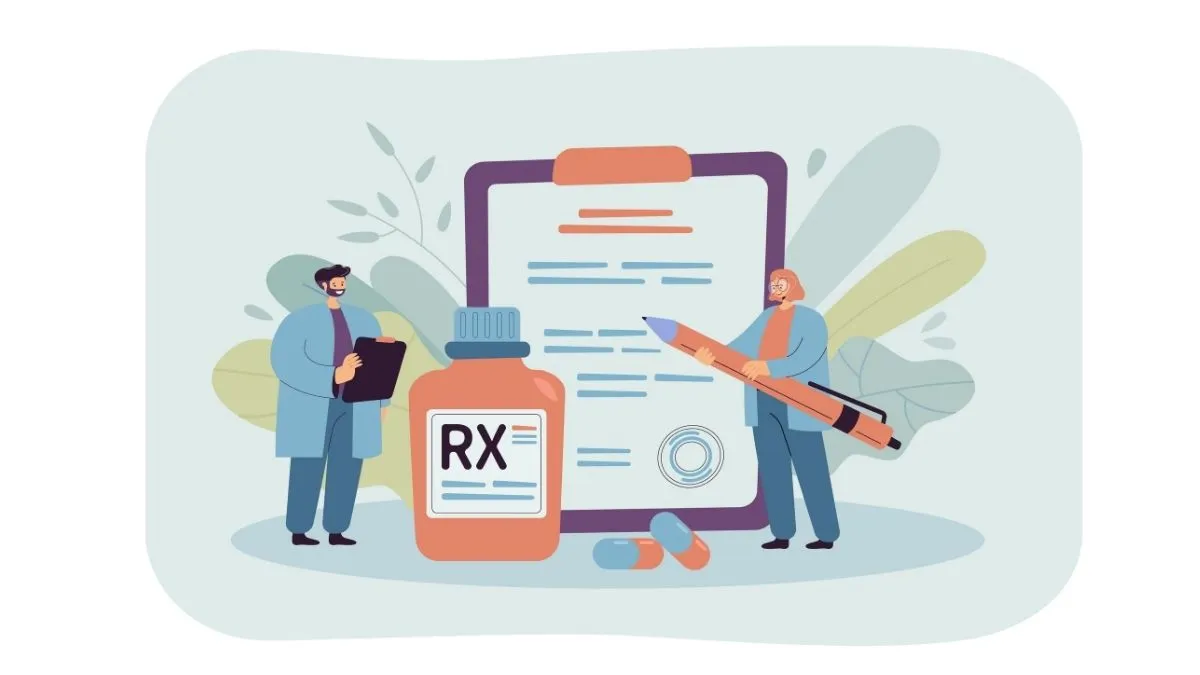HEALTH AND FITNESS
OTC or Prescription? How to Know Which Option Is Right for You

You’ve been there, standing in the pharmacy aisle, staring at rows of options, and asking yourself: Do I grab the OTC version, or do I really need a prescription?
It sounds simple, but the choice isn’t always clear. Pick wrong, and you could waste money, delay feeling better, or even make things worse.
That’s why a little guidance goes a long way.
In this article, Uptown Pharmacy will help you cut through the confusion. We’ll explain the difference between over-the-counter and prescription medications, show you when it’s safe to self-treat, and share the signs that it’s time to see a professional.
With the proper knowledge, you’ll walk out of the pharmacy feeling confident, not second-guessing your decision.
Table of Contents
The Aisle Dilemma: Why Choosing Isn’t Always Simple
You’re not alone if you’ve stood in the pharmacy aisle, overwhelmed by choices.
Boxes of cold medicine, pain relievers, creams, and tablets all promise relief. But then the doubt creeps in: Is this safe for me? Will it actually work? Should I be asking a doctor instead?
The truth is, the line between over-the-counter (OTC) and prescription medication isn’t always obvious.
Sometimes, grabbing something off the shelf is enough. Other times, only a doctor’s note can get you the treatment you really need.
And that uncertainty is stressful, especially when you just want to feel better.
OTC 101: Relief You Can Grab and Go
OTC medications are the everyday heroes of self-care. They’re easy to access, don’t require an appointment, and often provide quick relief for common issues.
Think about:
- Headaches or mild pain.
- Seasonal allergies.
- Heartburn or indigestion.
- Minor cuts, scrapes, or rashes.
- Cold and flu symptoms.
For many people, these solutions are all that’s needed. OTC options can help you bounce back without disrupting your routine.
But here’s the catch: “easy access” doesn’t always mean “safe for everyone.”
Dosages, possible interactions with other meds, and even your age or health conditions all play a role in whether an OTC drug is right for you.
It’s not just about what’s available; it’s about what’s safe and effective for you.
Prescription Power: When Only a Doctor’s Note Will Do
Some health concerns go beyond what OTC medications can handle. That’s when prescriptions step in.
These medications are stronger, more targeted, and regulated more closely for a reason.
They’re designed to treat conditions where the wrong choice could be risky, or where self-treatment simply won’t cut it.
You’ll likely need a prescription if you’re dealing with:
- Chronic illnesses like diabetes, high blood pressure, or asthma.
- Severe infections that require antibiotics.
- Mental health conditions that need long-term management.
- Stronger pain relief beyond OTC limits.
- Situations where OTC meds stop working or don’t bring relief.
Here’s the bottom line: prescriptions aren’t just “stronger medicine.” They’re tailored solutions, backed by a doctor’s knowledge of your health history and specific needs.
Stop and Think: Signs It’s Time to See a Professional
It can be tempting to stick with OTC options for convenience.
But there are moments when self-treatment isn’t enough, and pushing through on your own may actually delay healing.
Red flags that it’s time to get professional care include:
- Symptoms that don’t improve after a week of OTC treatment.
- Pain or discomfort that keeps getting worse.
- Sudden changes in your health, like a fever that won’t break.
- Side effects or reactions after starting an OTC medication.
- A health condition you’re already managing that could complicate things.
Listening to your body matters. If something feels off, it’s usually a sign you need more than a quick fix from the shelf.
A Trusted Pharmacist: Your Hidden Health Ally
Here’s something many people forget: you don’t always need to figure it out alone.
Pharmacists are trained to do more than just hand you a bag of pills. They can:
- Explain how OTC and prescription drugs work.
- Flag possible interactions with meds you’re already taking.
- Suggest safe alternatives if one option isn’t right for you.
- Help you understand labels, dosages, and side effects.
Sometimes, a two-minute conversation at the counter can save you hours of worry or even prevent a dangerous mistake.
Pharmacists are one of the most accessible healthcare professionals you’ll ever meet. Don’t underestimate their role in helping you choose wisely.
Smart Choices Lead to Better Health
Navigating the world of medications doesn’t have to be overwhelming.
When you understand the difference between OTC and prescription options, you give yourself the power to make safer, smarter choices.
Here’s what to remember:
- OTC meds are great for everyday, minor issues, but they’re not risk-free.
- Prescription drugs step in when conditions are more serious or require stronger treatment.
- Professional help is never a waste of time. A pharmacist or a doctor, expert advice keeps you safe.
At the end of the day, the goal isn’t just quick relief. It’s making decisions that protect your long-term health.
And with the right knowledge, you can walk into the pharmacy with confidence, knowing exactly when the aisle is enough, and when it’s time to get professional support.
-

 GENERAL8 months ago
GENERAL8 months agoChristofle – For Those Who Dream of Family Heirloom Silver
-

 SPORTS10 months ago
SPORTS10 months agoDiscover the World of Football with Streameast: Watch Your Favorite Leagues and Tournaments
-

 GENERAL2 months ago
GENERAL2 months agoUncovering the World of кинокрадко: The Dark Side of Film Piracy
-

 GENERAL4 months ago
GENERAL4 months agoATFBooru: Anime, Gaming, and Subculture Imageboard






















